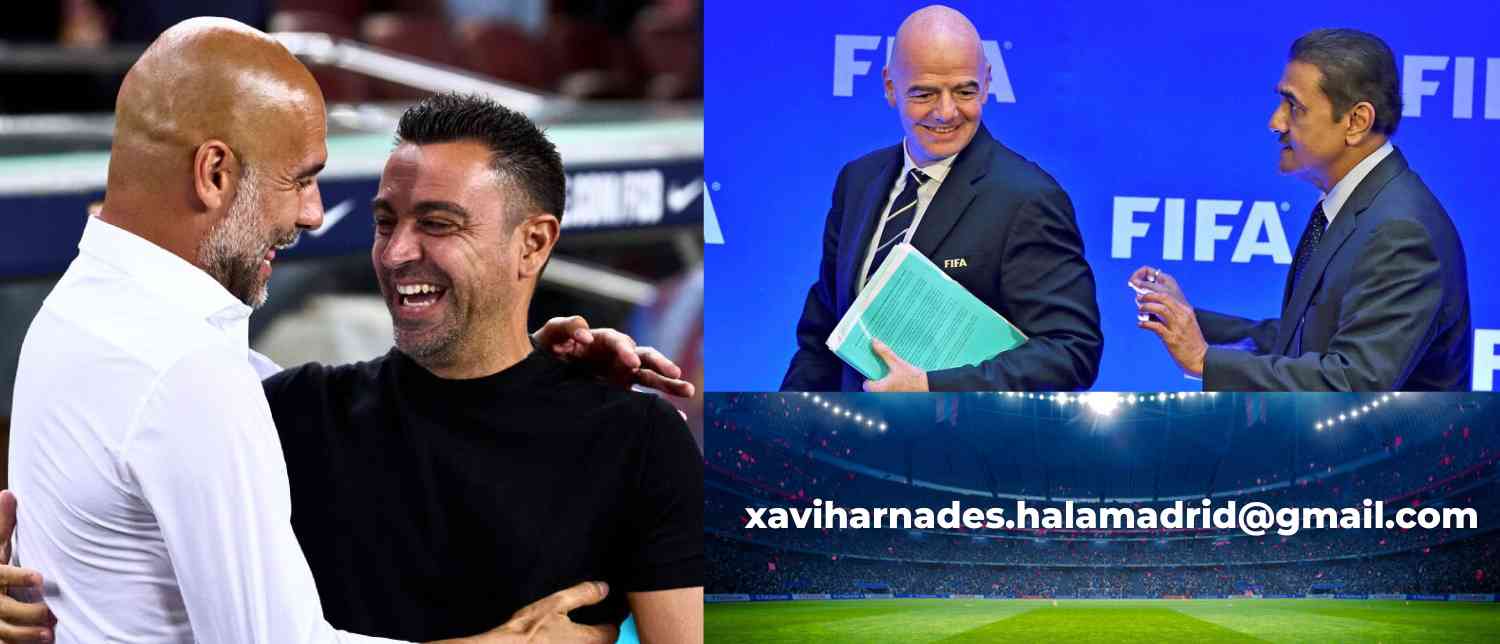The recent prank involving the All India Football Federation (AIFF) accepting a fake application for the head coach position is more than just a silly joke. It exposes deep-rooted problems in how Indian football’s top governing body operates. The fact that the AIFF announced the head coach vacancy in such an open manner that a teenager with no credentials or football background could apply, shows the lack of seriousness and professionalism in managing sports in India. When an important position related to a nationally followed sport is advertised without strong filters or checks, it sends the wrong message about the commitment India has towards its sports ecosystem.
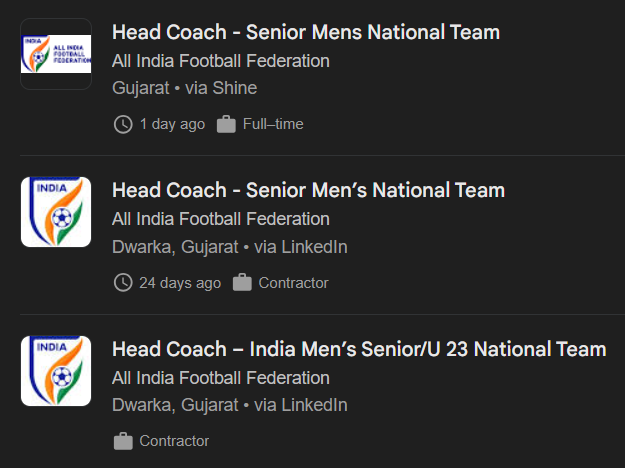
Sports administration, especially in football, needs dedication, understanding, and strict standards. But AIFF has demonstrated the opposite by making a job application process that lacks essential safeguards. This failure resonates beyond just the application form—it reflects a careless attitude toward football development and the governance of the sport in the country. It also shows the federation’s lack of awareness of the importance of high standards when it comes to hiring top talent.
AIFF’s Failure to Detect a Fake Email Shows a Lack of Basic Football Knowledge
What makes this incident even more embarrassing is the kind of fake email the prankster used. The teenager created an email with the address “xaviharnades.halamadrid@gmail.com,” pretending to be Xavi Hernandez, the legendary Barcelona star and coach. Even at a glance, this email seems suspicious for several reasons, but the AIFF didn’t spot the obvious red flags.

Xavi has never played for or coached Real Madrid — he is intrinsically linked with FC Barcelona, both as a player and a coach. Anyone with basic knowledge of football would know this. Yet, officials in AIFF, who are responsible for the sport in India, apparently failed to notice these glaring facts. If they had any understanding of football’s global landscape, they would have been skeptical the moment they received an application from “Xavi” via such an unprofessional email address.

The same carelessness was seen with fake applications posing as Pep Guardiola, another renowned European coach closely associated with clubs like Barcelona, Bayern Munich, and Manchester City. The federation not only missed the fake email address but also did not question why such iconic and successful coaches would suddenly be interested in coaching in India, a country where football is still developing in terms of infrastructure and fan base.
Why Would Legends Like Xavi or Pep Even Consider Coaching in India?
It’s important to understand the football world ecosystem when discussing this incident. Legendary players and coaches like Xavi Hernandez and Pep Guardiola operate at the very pinnacle of global football. They coach elite teams in world-class leagues with immense resources, infrastructure, and fan support.
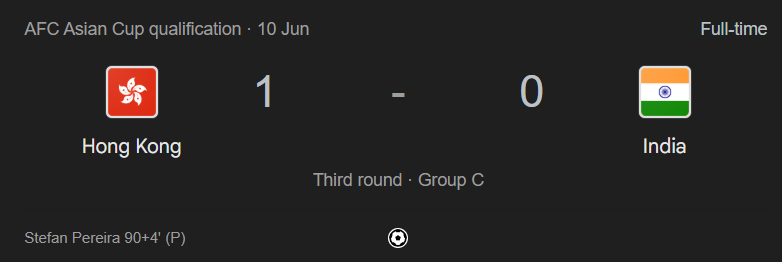
Indian Men's Football cant't even beat Hong Kong and AIFF expected that Xavi applied as Head Coach for India.
India, however, remains far from being a football powerhouse. Despite growing interest, Indian football lacks the high-end facilities, attractive leagues, and strategic investments that would interest world-class football personalities. The financial benefits, professional growth opportunities, and competitive challenges simply do not compare with what Europe offers. On top of that, these icons have their own footballing philosophies and ambitions tied with top European clubs — leaving such roles to accept an offer in India would be a far stretch without major underlying incentives.
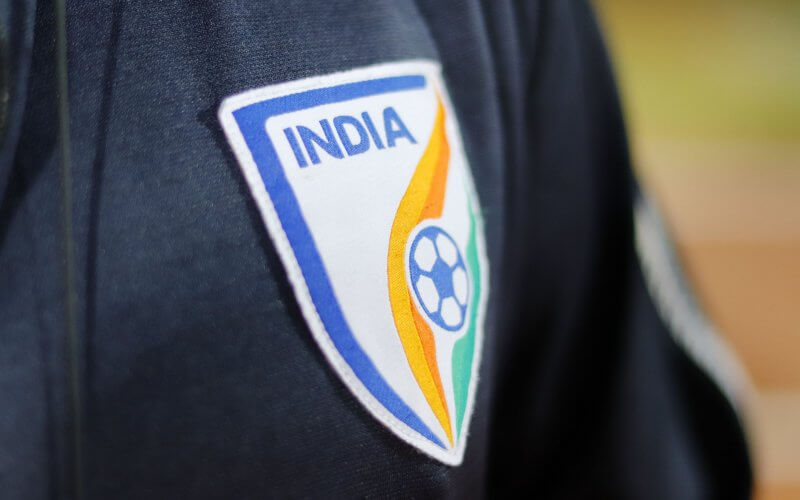
If AIFF officials had basic football insight, they would have found it suspicious that Xavi or Pep would show sudden interest in coaching India’s national team. Instead, this lack of critical thinking led them directly into the prankster’s trap.
The Incident Has Become World Football’s Laughing Stock
Once the prank was exposed, the incident quickly spread across football media worldwide. Reputed sports journalists, analysts, and insiders found it both astonishing and amusing that AIFF fell victim to such a simple trick.

The global football community views this event as a major embarrassment for Indian football administration. This incident has damaged the country’s footballing reputation internationally. Instead of being seen as a developing football nation with potential, India appeared disorganized, naive, and incompetent in the eyes of the world.
Such incidents do more harm than good, discouraging genuine football talents, potential sponsors, and international coaches from associating with Indian football. It also creates doubts about the federation’s ability to handle football professionally and foster a competitive environment.
Who Pulled Off This Prank and How?
The prank was executed by an 18-year-old football enthusiast and a student from VIT Vellore—a tech-savvy youngster who used basic digital tools to fool the AIFF. The teenager created a fake email ID mimicking Xavi’s name and drafted a convincing application using AI technology (like ChatGPT), then sent it to AIFF’s technical committee.

What’s remarkable is not just the prank itself, but how easily AIFF accepted the application without questioning the authenticity or the source. Later, the prankster shared evidence of his scheme, including a screen recording, embarrassing the AIFF even further and exposing weaknesses in their recruitment and verification systems.
This episode highlights how gaps in digital literacy, procedural rigor, and accountability in sports organizations can be easily exploited—even by young individuals. The AIFF got caught napping.
AIFF’s Administrative and Technical Shortcomings Must Be Rectified
This embarrassing incident is a glaring wake-up call for the AIFF and Indian football administration. Sports governance requires maturity, professionalism, and a deep understanding of the game on multiple levels.
AIFF must introduce strict verification procedures for all communications, especially recruitment and hiring processes. These procedures should include:
-
Verification of candidate identity through official channels
-
Cross-checking credentials and backgrounds with known football databases and associations
-
Engaging football experts to screen applications critically and professionally
-
Investing in digital security tools to weed out fake IDs and emails
-
Setting up a dedicated team responsible for handling official communications who understand football globally
Moreover, the statements from AIFF officials that reflect their inability to pay big salaries or attract international stars show the federation’s lack of ambition and planning. Without clear, strategic, and financially sound planning, recruiting top talent is a distant dream.
What This Incident Says About Indian Football’s Larger Issues
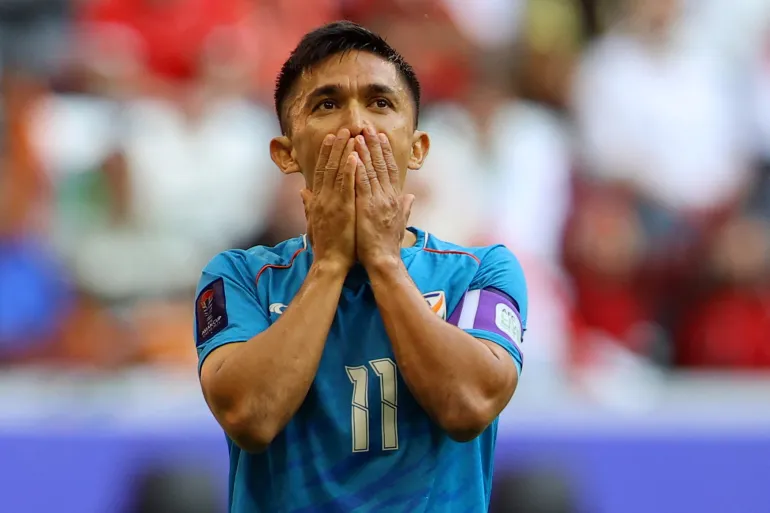
This prank email story is not just about one email application going unchecked; it highlights profound and long-standing issues within Indian football:
-
Lack of Professionalism: Indian football administration still operates in a somewhat amateurish manner, without the rigor expected at national and international levels.
-
Poor Football Understanding: Many officials lack basic football knowledge, which is critical when the goal is to develop the sport in the country.
-
Implementation Gaps: Policies and announcements are made without proper execution mechanisms or safeguards.
-
Resource Constraints: Without financial capability, AIFF struggles to offer competitive incentives needed to attract top international talent.
-
Inadequate Digital Literacy: Digital gaps leave AIFF vulnerable to impersonations and misinformation.
These systemic problems have stunted Indian football’s growth and must be addressed holistically for genuine progress.
What Needs to Change?
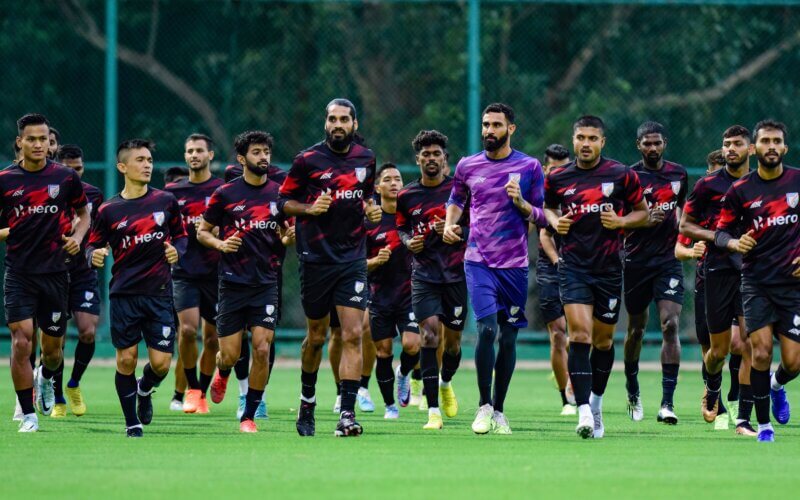
To move beyond this embarrassment and toward a respected football future, India must:
-
Reform Football Governance: Replace or retrain inadequate authorities who demonstrate poor grasp and seriousness toward football.
-
Professionalize Recruitment: Develop a transparent, strict, and secure recruitment process for all roles.
-
Increase Football Knowledge: Hire consultants and professionals with solid football credentials to guide the federation.
-
Invest in Infrastructure and Grassroots: Build a strong foundation that can attract skilled coaches and players naturally.
-
Strengthen Digital Security: Protect official communication channels from forgery and impersonation.
-
Develop a Football Culture: Encourage fan engagement, sponsorships, and league development to make India appealing for top football talents.
Only through these comprehensive reforms can India shed the image of a laughingstock and emerge as a credible football nation.
A PR Disaster That Indian Football Can’t Afford
The AIFF falling for a prank email from a teenager pretending to be Xavi Hernandez is not just funny—it’s deeply worrying. It shows a catastrophic lack of knowledge, preparation, and professionalism within India’s football governing body. If the organization responsible for growing the sport can’t even manage a simple job application process correctly, what hope is there for Indian football’s global ambitions?

This humbling episode must serve as a lesson. India’s football administrators need urgent reforms to catch up with international standards. They must hire qualified football professionals, adopt stringent process checks, improve digital literacy, and most importantly, take the sport seriously.
Without drastic improvement, Indian football will continue to be viewed with skepticism and mockery on the world stage. But with strong leadership and vision, India can rise beyond these setbacks to become a respected contender in global football.
With inputs from agencies
Image Source: Multiple agencies
© Copyright 2025. All Rights Reserved Powered by Vygr Media.

